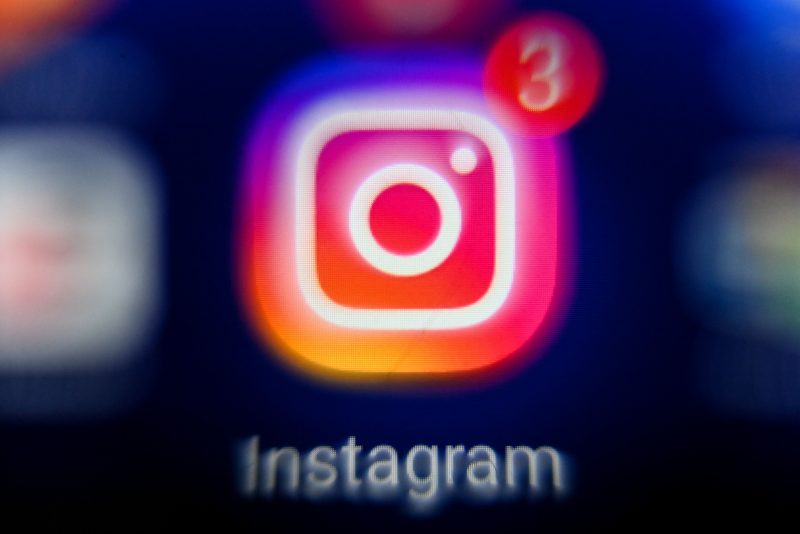 |
| A picture taken on October 18, 2021 in Moscow shows the US social network Instagram’s logo on a tablet screen. Instagram has announced that they will be implementing a new “teen account” setting to protect young and impressionable users on the platform. On Tuesday, the social media app announced the new setting, which will automatically make teen accounts private as well as restricting content they can view. Instagram will automatically apply the new “teen accounts” settings for all users under the age of 18. The new restrictions are also meant to incentivize parents of teenagers to allow their children to use the app, emphasizing the value and acceptance of parental monitoring. After the update, 16 and 17-year-old users will be able to manually restore the app to their preferred settings, while 13 to 15-year-old users will still need parental permission to do so. The new “teen account” settings shift comes after immense pressure was put on Meta to protect young users following whistleblower Arturo Bejar’s claims regarding the company. Bejar claimed that Meta’s top executives, including CEO Mark Zuckerberg, ignored warnings for years about the possible harm to teens on its platforms during a November Senate subcommittee hearing. Court documents from recent lawsuits against Meta have alleged that Zuckerberg repeatedly dodged teen “well-being initiatives.” They also claim that Meta knowingly refused to shut down accounts belonging to children under the age of 13, and that the company has enabled lurking child predators. In January, Zuckerberg appeared at a Senate hearing, where he apologized to the families of children who have been harmed in any way by its social media app. Meta says the most recent changes aim to “address parents’ biggest concerns: who their teens are talking to online, the content they’re seeing and whether their time is being well spent.” The “teen accounts” update also means that accounts for users under the age of 18, both new and existing, will be automatically set to private and given the strictest messaging settings possible. Teen users will only be able to receive messages from people they are already connected to (friends with) following the revision. Instagram will also restrict who can tag teenagers in photos or mention them in comments to only those they follow. The change restricts the types of “sensitive” content that teens can see on their app’s Explore page and in Reels (Instagram videos), such as posts advertising cosmetic procedures or sexually vulgar content. Nevertheless, Instagram had already started implementing a similar strategy, but in a limited capacity, earlier this year. This time around, teen users will also receive time limit reminders, prompting them to leave after spending one hour on the app each day. Between 10 p.m. and 7 a.m., the app will switch to “sleep mode,” which mutes notifications and sends auto-replies to direct messages. Additionally, the app will add new features to its parental supervision tool, allowing parents to see which accounts that their teen(s) have recently messaged, set total daily time limits for teens’ Instagram use, prevent teens from using Instagram at night or during other specific time periods, and see the content that their child has viewed on the app. The changes are expected to be rolled out to all teen accounts in the United States, United Kingdom, Canada, and Australia within the next 60 days, with additional countries following later this year and next. Instagram plans to apply the changes for all teen accounts in the selected countries starting as soon next week. However, the company has no way of knowing for sure if it’s a parent actually monitoring a teen’s account rather than, say, an older friend of the teen. Meta does not conduct formal parent verification, but says that it relies on “signals,” such as the birthdate of the adult user and how many other accounts they supervise to determine if it should be allowed to oversee the account. Meta has long been criticized for failing to do more to prevent teenagers from lying about their age when creating a new account to circumvent safety measures. The company says it is implementing artificial intelligence (AI) technology to identify teen accounts that may have incorrectly listed an adult birthdate.
|



No comments:
Post a Comment